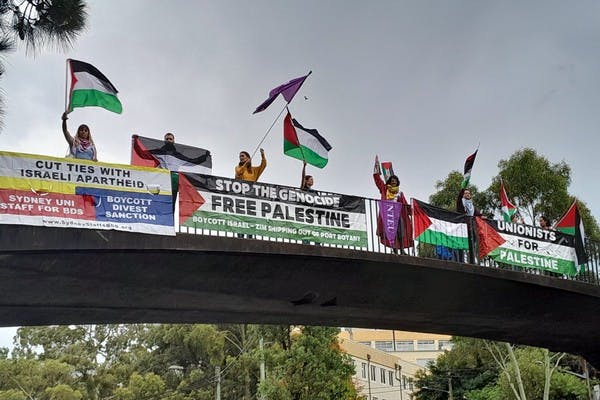Published: 30 July 2021
Last updated: 4 March 2024
DASH LAWRENCE: With Holocaust survivors dwindling around the world, next month’s conference, Aftermath, explores the ‘precariousness’ of Holocaust memory
ANYONE WHO WITNESSED the January 2020 commemoration event for the 75th anniversary liberation of Auschwitz – with a only handful of frail, elderly survivors left to attend – will know how fragile Holocaust memory has become.
Of the three and half million European Jews who survived the Holocaust, fewer than 400,000 are alive today. By the end of this decade that number will be closer to 100,000.
Since Covid-19 began its spread across Israel, the United States and Europe, thousands of Holocaust survivors have lost their lives to the pandemic. (In Israel alone, an estimated 900 survivors had died by January 2021).
The events of the last 20 months may have accelerated the demise of a dwindling generation – but nothing was going to hold back the inevitable tide of old age. With or without vaccines, the last surviving witnesses to the extermination of European Jewry will soon be gone.
It’s a thought often on the mind of Noah Shenker, a senior lecturer in Holocaust and Genocide Studies at Monash University’s Australian Centre for Jewish Civilisation (ACJC).
This August, Shenker will co-convene the University’s Jan Randa Aftermath Series: a program of online lectures on Holocaust memory. Aftermath’s theme this yearly is aptly focused on the “precariousness of memory”.
Art and representation form the backbone of the program: sessions include Yiddish Holocaust poetry (featuring Melbourne’s much-loved family act The Bashevis Singers), Jewish Holocaust songbook, and Representations of the Holocaust Across Generations (featuring a focus on museums).
Another session delves into the Holocaust survival story of visual artist Mirka Mora, who is the subject of the current MIRKA exhibition at the Jewish Museum of Australia.
The conference’s headline speaker, Pulitzer Prize-winning cartoonist and writer Art Spiegelman, whose multi-volume Maus is among the most revered graphic novels of all time, will be keenly anticipated by many.

“Maus shows us the ways in which memory is not simply a comforting, redemptive transmission process across generations. But it’s something that carries the traces of trauma, fear and angst. How do you represent that fear and trauma in a way that is not trying to beautify the past?”
“While Spiegelman is someone who we associate with Maus, but he also has a very broad conception of trauma and memory, if you think about his work on 9/11.”
Shenker said that “since the 1970s, when there was a rush to create archives of survivor testimonies, there’s been a sense of the precariousness of Holocaust memory.
“But with the onset of Covid, it’s felt like the precariousness of survivors and their memory has been heightened – in terms of their health, their age and the fact that so many Holocaust commemoration events in the past 18-20 months have been migrated online.
“Our opportunities to interact with survivors, to hear their stories and have discussions, these are all changing radically. And it’s only going to continue.”
He added that efforts to capture and digitise Holocaust documents have redoubled in recent years. Underscored, in part, by the rise of populist politics in countries like Hungary and Poland where the ruling Hungarian Civic Alliance and Law and Justice Party have cozied up with antisemites and Holocaust deniers.
It’s in this global context that the ACJC has revived the Aftermath conference, after a five-year hiatus.
On this occasion, organisers built the program from “bottom up, rather than top down”.
“I thought it was important that everyone in the Faculty was having input. So, we created an opportunity to ask our staff and students: ‘what is your ideal program that you’d like to contribute?’.
The result is a cornucopia of online sessions throughout August, that should generate broad interest beyond academics and researchers.
Sexual violence in the Holocaust, a growing area of interest among Holocaust and genocide scholars, has been included in the program.
Three emerging local researchers will address different aspects of this once taboo aspect of Holocaust memory.
“There has been a proliferation of archives with stories that were sometimes neglected or overlooked or not transcribed. Scholars have started to look at pre-existing archives, to look for discussions that have fallen through the cracks, including sexual violence”
In his own session on August 8, Shenker will address the emerging area of the ‘digital afterlife’ of Holocaust testimony. The focus of his talk will be the USC Shoah Foundation’s pioneering project that utilises artificial intelligence to create a virtual rendering of Holocaust survivors. The technology promises to capture the experience of speaking to survivors long after they’re gone.
I don’t think there’s any other community of survivors quite like Melbourne. You have a tightly condensed group, across generations who are constantly sharing their stories.
Fittingly, Aftermath continues to honour the memory of the late Dr Jan Randa; a beloved Jewish scholar, Holocaust survivor and educator of generations of students in Melbourne.
“I don’t think there’s any other community of survivors quite like Melbourne,” Shenker said.
“You have a tightly condensed group, across generations who are constantly sharing their stories. Because you never had a dispersion, you have survivors, their children and grandchildren often living in the same flat and same block. There’s a strong cultural continuity here.”
While the lives of Randa and other suvivors, may be receding further into the past, the memory of the Holocaust and the questions it provokes, remain pertinent to Shenker:
“These issues are not relegated to the past. These are questions that are popping up and are of constant relevance.”
The Jan Randa Aftermath Series: The Precariousness of Holocaust Memory will be held 8-22 August 2021. For more information on the sessions and speakers, including registration, click here.
Photo: Art Spiegelman




